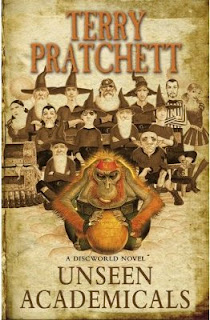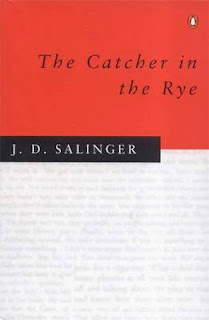What would a Labour Brexit look like?
Some Remainers are upset at Jeremy Corbyn again, after he apparently ruled out staying in the single market after Brexit. Many have taken umbrage at his claim that single market membership is intrinsically linked to EU membership, pointing to the EFTA countries Norway, Switzerland, Liechtenstein and Iceland as counterexamples.
But Corbyn is technically correct to say that the single market is not a club that can be joined. You can of course loosely say that the likes of Norway and Switzerland are "in" the single market, but their high level of access comes through the EEA agreement and bilateral treaties respectively, which include exceptions such as agriculture and fisheries. It's not a binary distinction by any means.
Rather than argue semantics, a more fruitful exercise is to analyse what Labour would actually hope to achieve if they were in charge of Brexit negotiations. As with the Conservatives, it is clear enough if you take at face value what they say they want rather than just assuming they don't know what they're talking about.
For Labour the key phrase is a "jobs-first Brexit, which involves retaining the benefits of the single market". This language dates back at least as far as the 2017 manifesto, and immediately makes clear the difference in priorities between the two parties. Of course Tory Brexiters might argue that their approach is good for jobs because the possibility of new trade deals with non-EU countries outweighs restricted access to our most important trading partners. But regardless of whether that is true or not, it is clear that Labour's position is different.
What does "retaining the benefits of the single market" mean in practice? It could mean an arrangement similar to Norway's, with single market participation for almost everything except food, or it could mean a Swiss model with sector-by-sector agreements adding up to basically the same thing. What it surely doesn't mean is the Tory goal of freedom to diverge from EU regulations wherever practical in order to pursue the will-o'-the-wisp of trade deals elsewhere.
The only evidence against this interpretation of Labour's position I can find is the shadow trade secretary Barry Gardiner's comments back in July that the UK must be free to sign its own trade deals or become a "vassal state" of the EU. If this were Labour's policy then it would imply an almost carbon copy of the Tories' approach, but thankfully Gardiner's views appear to not be representative of the party as a whole.
So why do Labour use the "retain the benefits" line rather than simply saying they'll "stay in"? Presumably to keep the actual mechanism for achieving this open, but also to put them in a position to negotiate concessions on the free movement of people between the UK and EU. Again this goal dates back at least as far as the 2017 manifesto, which said in no uncertain terms that "freedom of movement will end when we leave the European Union". There was no doubt then or now that Labour regard this as an essential part of respecting the referendum result.
Before the referendum I wrote that I regard freedom of movement as the single greatest benefit of being in the EU, so that line did lead me to pause for some time before voting Labour again in 2017, despite the fact that the rest of the manifesto was superb. I gave Labour the benefit of the doubt in the end because it seemed like there could be more wriggle room there than meets the eye, and everything Keir Starmer has said in the aftermath backs this up.
Labour's line has been gradually softening on Brexit in the last few months, and their position on free movement is also gradually coming into focus. Starmer notably said in December that there would be "easy movement" of EU workers after Brexit, while reiterating that Labour wanted to retain the full benefits of the customs union and full participation of the single market.
The phrasing entails some, albeit small, concession from the EU on free movement beyond what Cameron obtained in the renegotiation, and you could argue that the EU would under no circumstances allow such a diminishing of one of the "four freedoms". But that wilfully ignores the fact that Ukraine has significant access to the single market with no free movement, that Switzerland reached a compromise to give priority to Swiss-based job seekers, that the EEA agreement contains an emergency brake on immigration, and that Liechtenstein imposes a quota on new residents each year. There may even be scope for reforms across the EU as a whole, such as on the posted workers directive. Any one of these things would be a plausible "concession" in a Labour-negotiated Brexit.
Despite the plausibility of such a deal, it is commonly said that the choice facing Britain is between Canada and Norway models and that trying to achieve any kind of bespoke deal is a waste of time. But in order to keep the Irish border open, as both the EU and UK have committed to in phase 1, the UK must logically have to be in some species of single market and customs union arrangement with the EU, even if it is not "the" single market and "the" customs union. And there is no non-EU country currently in this position. Not Norway, certainly not Canada, not Switzerland, not Iceland, not Liechtenstein. To be clear: any deal which keeps the Irish border open is a bespoke deal.
When looked at objectively there is absolutely no doubt that Labour's position on Brexit is considerably softer than the Tories, and like the Tories getting softer with time. And while the "soft" and "hard" labels now obscure more than they enlighten, if we have to use them then Labour are to all intents and purposes a soft Brexit party.
This is part 2 of a two-part series looking at the major parties' approach to Brexit. See Part 1 for an analysis of the Tory position.



This was a great pair of articles; thanks for writing them.
ReplyDeleteThanking you right back, very kind!
Delete